Questões de Vestibular
Sobre interpretação de texto | reading comprehension em inglês
Foram encontradas 4.863 questões


I - A expressão give yellow a go (l. 08) indica que amarelo não é uma cor popular para roupas. II - A expressão wear and tear (l. 30) diz respeito aos vários ternos rasgados durante a gravação do filme em que Cary Grant atuou. IlI - O paralelismo das ocorrências da palavra enough permite afirmar que, na construção enough enough (l. 57), o primeiro termo funciona como um adjetivo, ao passo que o segundo é um advérbio.
Quais estão corretas?




( ) A palavra would (l. 32) indica a recorrência de uma situação. ( ) A palavra as (l. 43) poderia ser substituída tanto por given that quanto por due to, sem prejuízo da correção gramatical e do significado original do texto. ( ) O segmento who needed them more, since they had families to support (l. 49-50) poderia ser substituído por who needed them more, inasmuch as they had families to support, sem prejuízo da correção gramatical e do significado original do texto. ( ) o easier segmento Odd choices were simply for men, most of whom would sti/1 find women g/ad to marry them (l. 55-57) poderia ser substituído por Odd choices were simply easier for those men who would still find women glad to marry them, sem prejuízo da correção gramatical e do significado original do texto.
A sequência correta de preenchimento dos parênteses, de cima para baixo, é


I - O cabelo de Juliet não consegue manter um determinado penteado, mesmo com o auxílio de produto específico. II - Os adjetivos fair-skinned (l. 31), light-brown (1. 32) e bright (l. 36) denotam cores claras. III- A timidez e a retração de Juliet são sugeridas pela cabeça baixa e pela facilidade com que seu rosto fica corado.
Quais estão corretas?


I - O segmento She was working on her PhD thesis (l. 20) indica um processo já finalizado no momento descrito pelo texto. II - O segmento Probab/y no one e/se had answered the ad (l. 25-26) faz alusão a uma situação anterior ao momento descrito entre as linhas 1 e 15. III- O segmento If she got marrled (l. 42-43) indica uma possibilidade para o futuro de Juliet.
Quais estão corretas?


I - Even though she was not reading it, Juliet had a book open on her lap. II - Despite she was not reading it, Juliet had a book open on her lap. III- ln spite of the fact that she was not reading it, Juliet had a book open on her lap.
Quais poderiam substituir o segmento, sem prejuízo do sentido original e da correção gramatical?




I - As condições climáticas são perceptíveis através do que Juliet vê pela janela do trem e através da temperatura do ar. II - Juliet aceitou uma proposta de trabalho muito aquém de sua formação acadêmica e experiência como professora. III- Uma das hipóteses sobre o futuro de Juliet combina a sensação de isolamento com a dificuldade de obter promoções no trabalho.
Quais estão corretas?
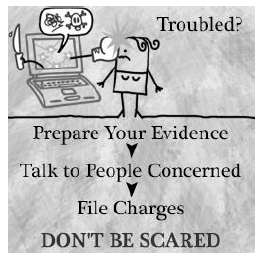
Disponível em:<https://buzzle.com/articles/how-to-deal-with-cyberbullying.html> . Acesso em: 17 abr. 2015.
De acordo com a ilustração e a parte verbal do texto,



Observe uma cobrança a seguir e responda à questão.
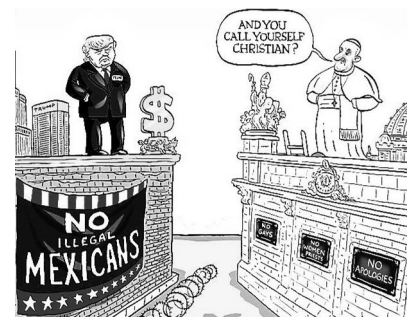
De acordo com a acusação, o termo “cristão”
Leia o texto a seguir para responder à questão.
The Internet of Things
The “Internet of Things” (IoT) is becoming an increasingly growing topic of conversation both in the workplace and outside of it. It’s a concept that not only has the potential to impact how we live but also how we work. But what exactly is the “Internet of Things” and what impact is it going to have on you, if any? There are a lot of complexities around the “Internet of Things” but we want to stick to the basics. Lots of technical and policyrelated conversations are being had but many people are still just trying to grasp the foundation of what the heck these conversations are about.
Let’s start with understanding a few things.
Broadband Internet is becoming more widely available, the cost of connecting is decreasing, more devices are being created with Wi-Fi capabilities and sensors built into them, technology costs are going down, and smartphone penetration is sky-rocketing. All of these things are creating a “perfect storm” for the IoT.
So What Is The Internet of Things?
Simply put, this is the concept of basically connecting any device with an on and off switch to the Internet (and/or to each other). This includes everything from cellphones, coffee makers, washing machines, headphones, lamps, wearable devices and almost anything else you can think of.
So what now?
The new rule for the future is going to be, “Anything that can be connected, will be connected.”
Analise o texto a seguir.
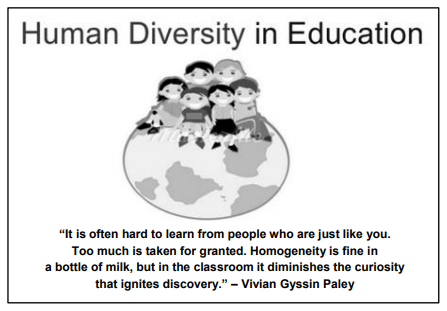
Disponível em: <https://pt.slideshare.net/oxblondieox98/human-diversity-in-education-11433320>. Acesso: 15 set. 2015.
According to the ideas expressed in the text
Leia o texto a seguir para responder à questão.
Migrant or Refugee? There Is a Difference, With Legal Implications
In the first half of this year alone, at least 137,000 men, women and children crossed the Mediterranean Sea to reach the shores of Europe, according to the United Nations. Thousands are traveling across the Balkans now. However, are they refugee or migrants? Does it make any difference? In search for these answers, let’s read the interview.
Q. Does it matter what you call them?
A. Yes. The terms “migrant” and “refugee” are sometimes used interchangeably, but there is a crucial legal difference between the two.
Q. Who is a refugee?
A. Briefly, a refugee is a person who has fled his or her country to escape war or persecution, and can prove it.
Q. What does the distinction mean for European countries?
A. Refugees are entitled to basic protections under the 1951 convention and other international agreements. Once in Europe, refugees can apply for political asylum or another protected status, sometimes temporary. By law, refugees cannot be sent back to countries where their lives would be in danger. “One of the most fundamental principles laid down in international law is that refugees should not be expelled or returned to situations where their life and freedom would be under threat,” the refugee agency said in a statement on Thursday.
Q. Who is a migrant?
A. Anyone moving from one country to another is considered a migrant unless he or she is specifically fleeing war or persecution. Migrants may be fleeing dire poverty, or may be well-off and merely seeking better opportunities, or may be migrating to join relatives who have gone before them. There is an emerging debate about whether migrants fleeing their homes because of the effects of climate change – the desertification of the Sahel region, for example, or the sinking of coastal islands in Bangladesh – ought to be reclassified as refugees.
Q. Are migrants treated differently from refugees?
A. Countries are free to deport migrants who arrive without legal papers, which they cannot do with refugees under the 1951 convention. So it is not surprising that many politicians in Europe prefer to refer to everyone fleeing to the continent as migrants.
Disponível em: <https://www.nytimes.com/2015/08/28/world/migrants-refugees-europe-syria.html?_r=0>. Acesso em: 15 set. 2015.
Leia o texto a seguir para responder à questão.
Migrant or Refugee? There Is a Difference, With Legal Implications
In the first half of this year alone, at least 137,000 men, women and children crossed the Mediterranean Sea to reach the shores of Europe, according to the United Nations. Thousands are traveling across the Balkans now. However, are they refugee or migrants? Does it make any difference? In search for these answers, let’s read the interview.
Q. Does it matter what you call them?
A. Yes. The terms “migrant” and “refugee” are sometimes used interchangeably, but there is a crucial legal difference between the two.
Q. Who is a refugee?
A. Briefly, a refugee is a person who has fled his or her country to escape war or persecution, and can prove it.
Q. What does the distinction mean for European countries?
A. Refugees are entitled to basic protections under the 1951 convention and other international agreements. Once in Europe, refugees can apply for political asylum or another protected status, sometimes temporary. By law, refugees cannot be sent back to countries where their lives would be in danger. “One of the most fundamental principles laid down in international law is that refugees should not be expelled or returned to situations where their life and freedom would be under threat,” the refugee agency said in a statement on Thursday.
Q. Who is a migrant?
A. Anyone moving from one country to another is considered a migrant unless he or she is specifically fleeing war or persecution. Migrants may be fleeing dire poverty, or may be well-off and merely seeking better opportunities, or may be migrating to join relatives who have gone before them. There is an emerging debate about whether migrants fleeing their homes because of the effects of climate change – the desertification of the Sahel region, for example, or the sinking of coastal islands in Bangladesh – ought to be reclassified as refugees.
Q. Are migrants treated differently from refugees?
A. Countries are free to deport migrants who arrive without legal papers, which they cannot do with refugees under the 1951 convention. So it is not surprising that many politicians in Europe prefer to refer to everyone fleeing to the continent as migrants.
Disponível em: <https://www.nytimes.com/2015/08/28/world/migrants-refugees-europe-syria.html?_r=0>. Acesso em: 15 set. 2015.
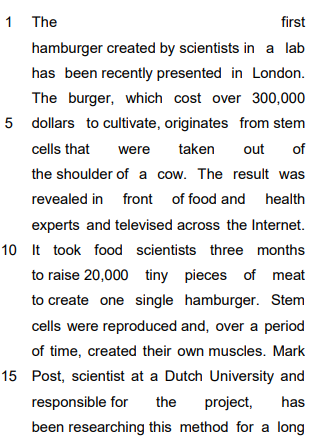
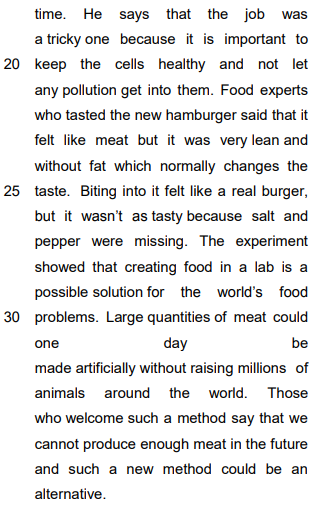
Disponível em: http://www.english-online.at. Acesso em: 08 nov. 2013.
Com base no texto, analise as seguintes assertivas:
I - O hambúrguer foi desenvolvido com células tronco retiradas do ombro de várias vacas. II - Especialistas disseram que o hambúrguer artificial parece de fato com carne. III - O hambúrguer produzido, apesar de artificial, era muito saboroso. IV - O método desenvolvido permitirá que diminua a criação de gado no mundo. V - De acordo com as marcas de Mark Post, o hambúrguer pode ser produzido em escala, a partir do ano que vem.
Assinale uma alternativa correta.

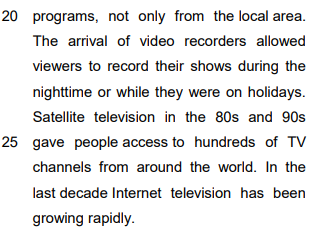
Disponível em: https://www.english-online.at/ Acesso em: 11 fev. 2014.
Com relação às TVs Smart (TVs Inteligentes), o texto informa que:
They were arrested last week on arrival at Tocontin airport in the Honduran capital, Tegucigalpa, from where they planned to travel to the United States. Their arrest came just days after the attacks in Paris and raised concerns in the US that Islamist militants could be trying to enter the country illegally. They have been charged with falsifying documents. They were arrested after Greek diplomats were called to the airport terminal and found the five did not speak any Greek. ‘No militant links’
Shortly after their arrest, Honduran police said there were no signs the men had any links to any militant groups. But the fact that they had successfully traveled through a number of Latin American countries on doctored passports before being stopped in Honduras raised concerns in Latin America and their intended destination, the U.S.
Honduran police said the five men, who range in age from 21 to 30 years, arrived on a flight from Costa Rica, where they had spent several days. Police spokesman Anibal Baca said that “we received information from [fellow] police services that these five Syrians left Greece and passed through Turkey, Brazil, Argentina and San Jose in Costa Rica before finally reaching Tegucigalpa”.
From there, they had planned to travel north to Guatemala and on to the US, he said. US Senator James Risch, who is a member of the Selected Committee on Intelligence, called the news “very troubling”. Honduran Minister for Human Rights Rigoberto Chang Castillo said on Monday that the five had requested asylum “because their lives were at risk in their home country”. The minister said their request would be considered even though they had been charged with forging official documents. A court will decide later on Tuesday whether they will face trial.
Disponível em: http://www.bbc.com/news/world-latin-america34909482 Acesso em nov. 2015.
Assinale a alternativa que corresponde às informações contidas no texto:
